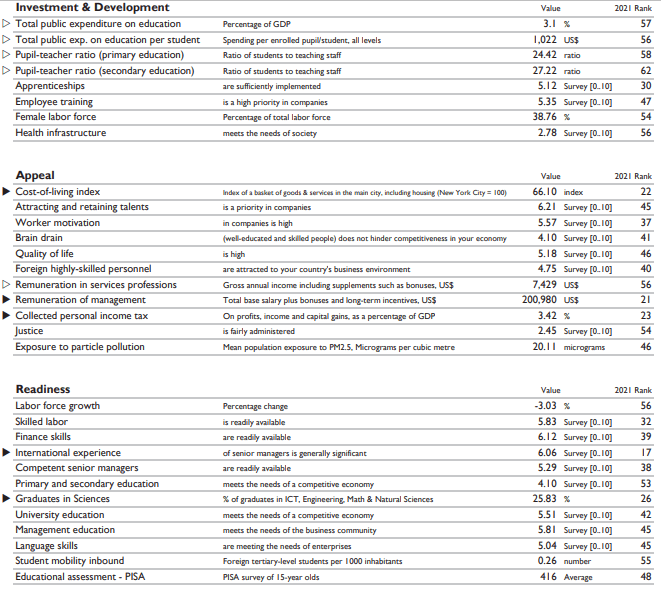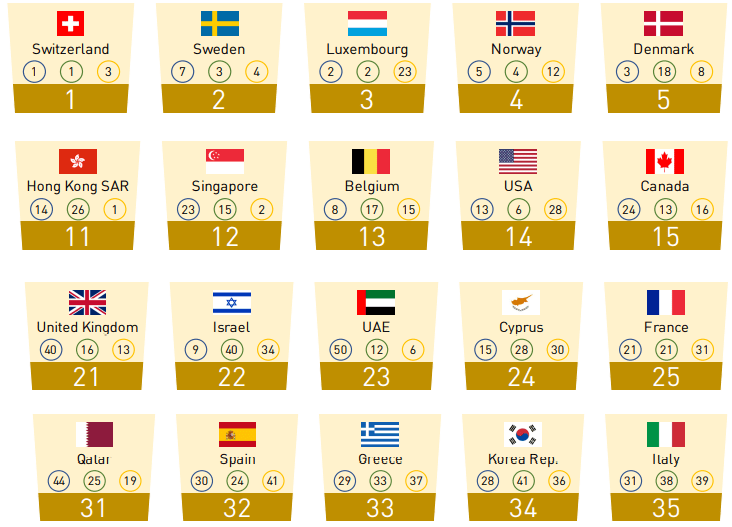Mexico fell three positions in the 2021 World Talent Ranking, prepared by the IMD, based in Switzerland, and released this Thursday.
With this, it went from 56th place in 2020 to 59th in 2021.
After ranking 56th in 2017, Mexico dropped to 61st in 2018 and climbed to 60th in 2019.
The IMD Global Talent Ranking assesses the status and development of skills necessary for businesses and the economy to achieve long-term value creation.
To do this, it uses a set of indicators that measure the development, retention and attraction of a highly qualified national and international workforce.
Mexico

Based on their research, the Global Talent Ranking methodology defines Talent Competitiveness on three main factors: Investment and Development, Appeal, and Readiness.
These three factors comprise 31 criteria, although each factor does not necessarily have the same number of criteria (for example, more criteria are needed to assess readiness than to assess investment and development).
Each factor, regardless of the number of criteria it contains, has the same weight in the general consolidation of results, which is 1/3 (3×33.3 ~ 100).
Talent
Criteria can be hard data, which looks at talent development as it can be measured (for example, total public spending on education) or soft data, which looks at the quality of these investments as it can be perceived (for example, education in management).
Finally, to calculate the World Talent Ranking, the IMD adds the criteria to calculate the scores for each factor that serve as the basis for generating the overall ranking.
It considers criteria such as total public spending on education, university education, learning, female workforce, employee training, health infrastructure, cost of living, worker motivation, talent attraction and retention, quality of life, brain drain, growth of the workforce, primary and secondary education, science graduates and international experience, among others.
![]()

